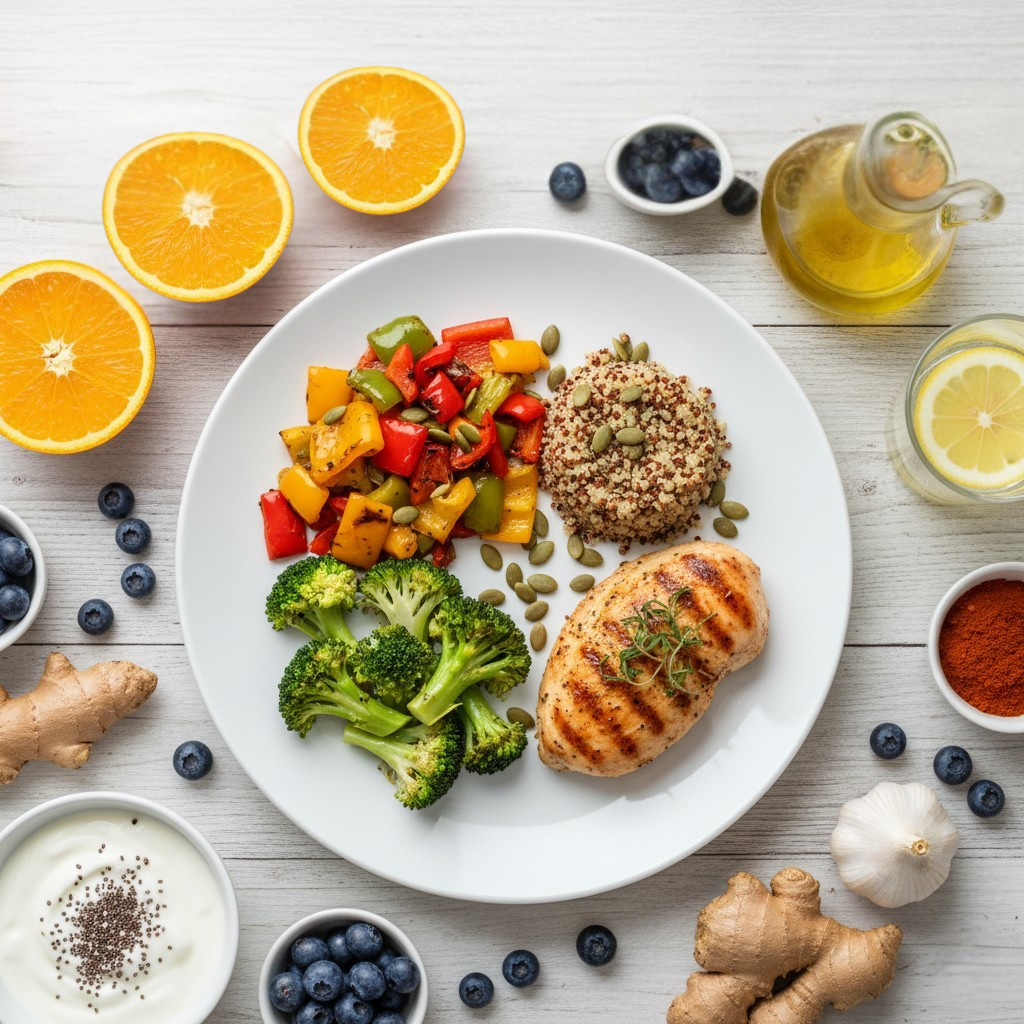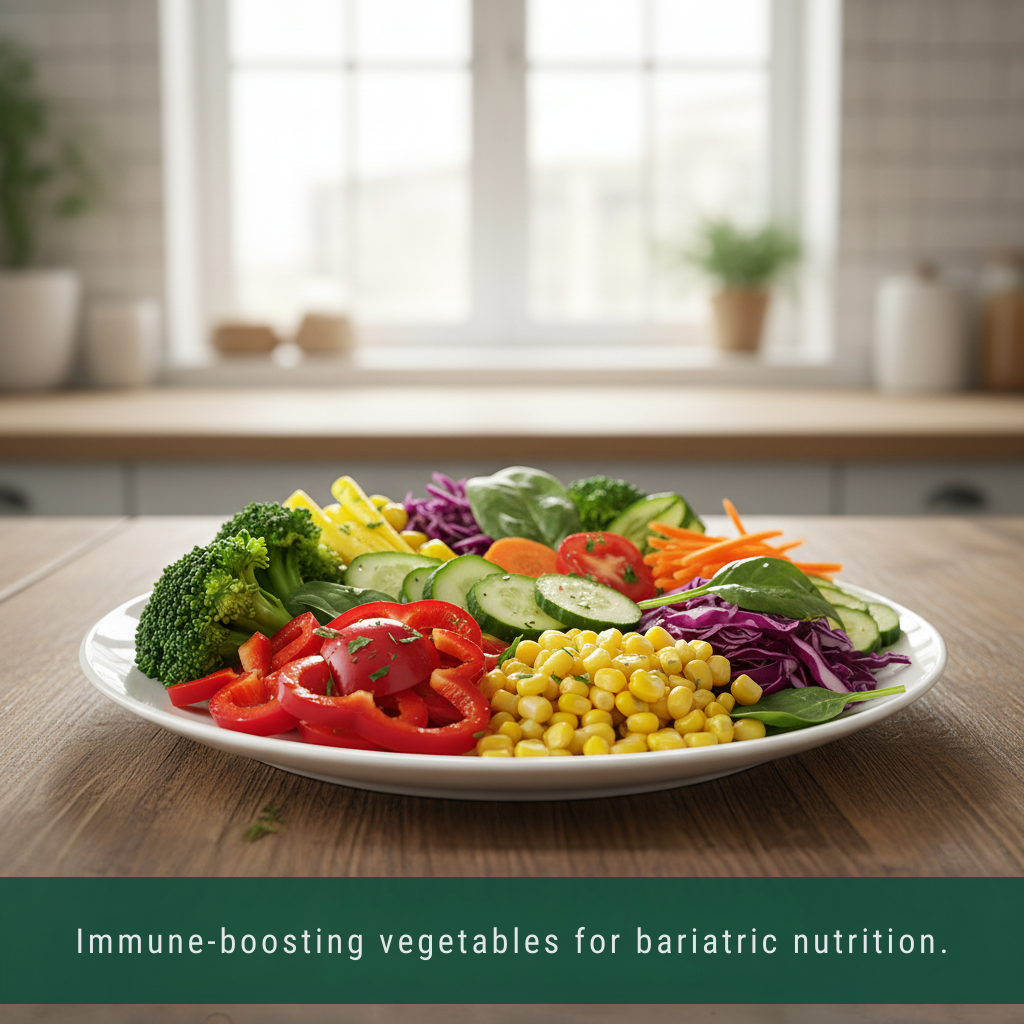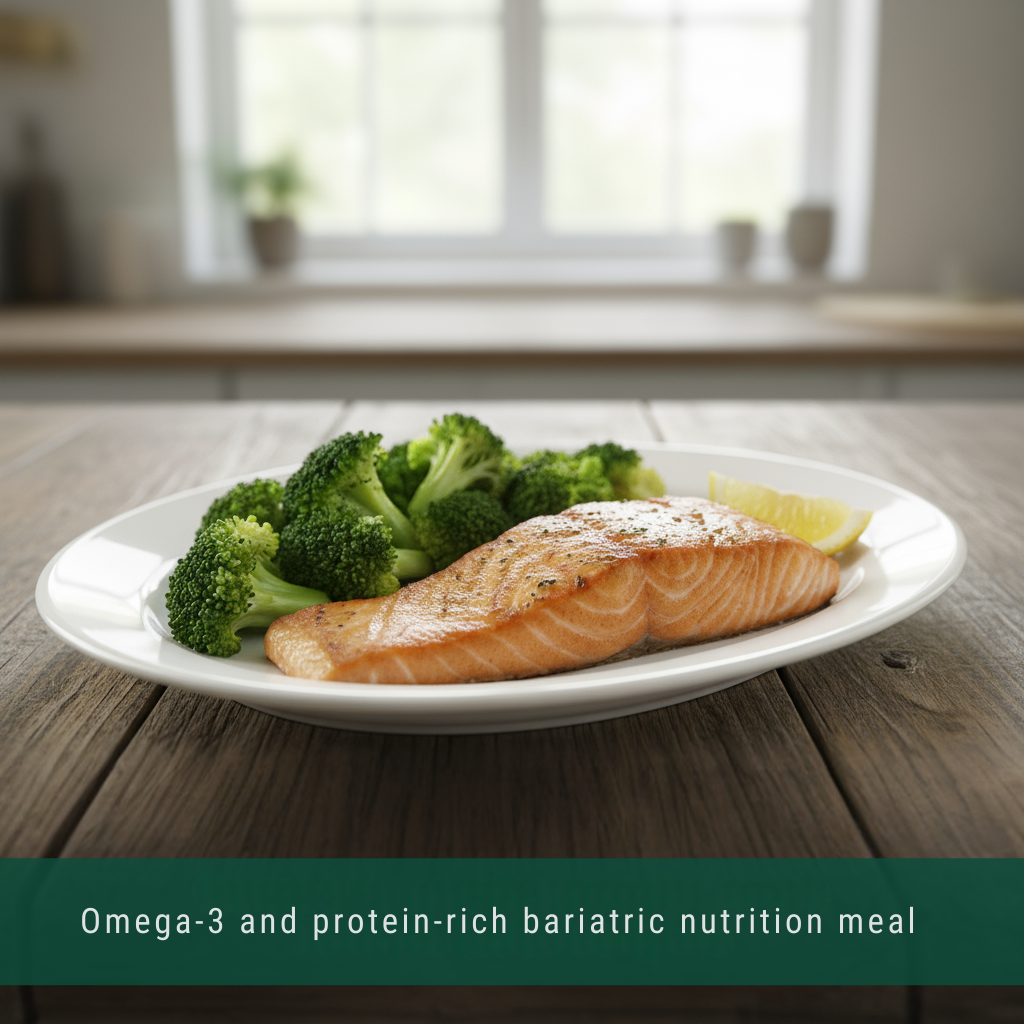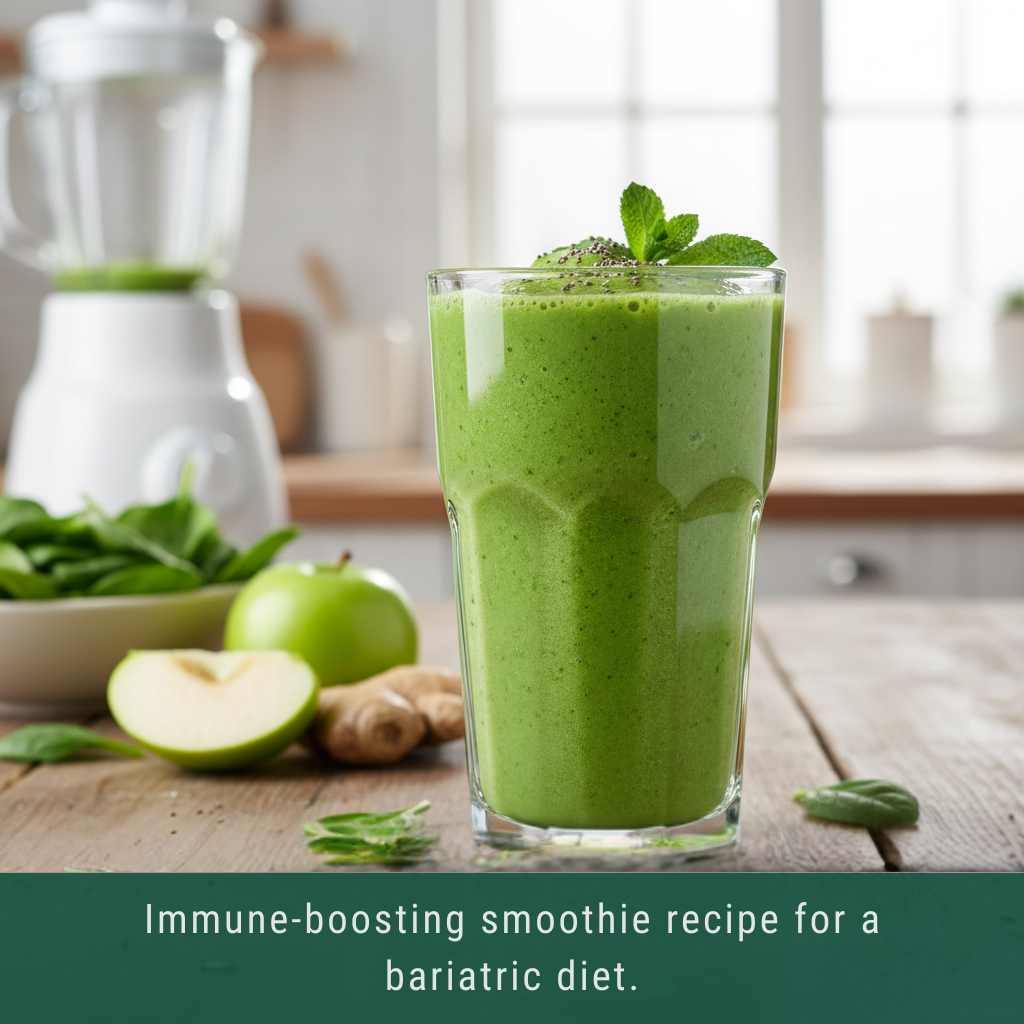
While bariatric surgery offers an effective solution in the fight against obesity, the post-operative bariatric nutrition process is critically important for strengthening your immune system. After procedures like sleeve gastrectomy or gastric bypass, the reduced stomach capacity and dietary restrictions bring the risk of not getting enough of the vitamins and minerals your body needs. Therefore, implementing a bariatric nutrition program that supports the immune system will not only increase your resistance to infections but also help protect your overall health.

Vitamin C: A Must-Have for Your Bariatric Diet Plan
Vitamin C is a fundamental vitamin that supports the function of immune cells and fights free radicals with its antioxidant effects. Since the smaller stomach volume after bariatric surgery can make it difficult to get enough Vitamin C, conscious consumption is important.
- Fiber Intake: Consuming the whole fruit instead of freshly squeezed juices helps balance your blood sugar and provides valuable fiber.
- Portion Control: You can add one orange or grapefruit to your salads daily.
- Snacks: You can consume Vitamin C-rich fruits like kiwi in small portions alongside a protein source (for example, a slice of cheese).
The Immune Role of Zinc in Bariatric Nutrition
Zinc is a critical mineral for the proper functioning of the immune system and plays a role in many processes, from wound healing to defending against infections. Since zinc deficiency is common in bariatric diets, special attention should be paid to foods containing this mineral.
- Animal Sources: Red meat and chicken are rich sources of zinc that are easily absorbed by the body.
- Plant-Based Sources: Pumpkin seeds, sunflower seeds, nuts, and legumes are also great alternatives.
Protein: The Building Block of the Immune System
Protein plays an indispensable role in the production of immune cells and antibodies. Adequate protein intake after bariatric surgery is vital for both preventing muscle loss and keeping the immune system strong. For detailed information on this topic, you can check out our article on The Importance of Protein Consumption in Bariatric Surgery.
- Per-Meal Target: Aim to consume 20–30 grams of high-quality protein with each main meal.
- Low-Fat Options: Choose easily digestible and low-fat protein sources such as eggs, yogurt, kefir, chicken, and fish.
- Supplements: When necessary, you can use protein powders as recommended by your doctor or dietitian.

Control Inflammation with Omega-3 Fatty Acids
Omega-3 fatty acids are known for their anti-inflammatory properties in the body. To support the post-surgery healing process and suppress inflammation, you should definitely include omega-3 sources in your bariatric nutrition plan.
- Healthy Fats: Don’t forget to use olive oil in your salads.
- Fatty Fish: Salmon, mackerel, and sardines can be consumed 1-2 times a week.
- Seeds and Nuts: You can add walnuts, chia seeds, and flax seeds to your salads or yogurt.
The Power of Probiotics: Gut Health with Yogurt and Kefir
Probiotics support the digestive system, which governs more than 70% of the immune system, by balancing the gut flora. Probiotics are an excellent aid for reducing digestive sensitivities after bariatric surgery.
- Daily Consumption: Try to consume 100–150 ml of kefir or a bowl of homemade yogurt every day.
- Natural Choices: Opt for plain products that are free of sugar and additives.
Vitamin-Rich Green Leafy Vegetables
Green leafy vegetables like spinach, chard, and broccoli are packed with the vitamins and minerals the immune system needs. Small-portioned vegetable dishes prepared for a bariatric diet are gentle on the stomach and ensure vitamin intake.
- Cooking Method: Lightly steam vegetables to preserve their nutritional value.
- Color Diversity: By adding different colored vegetables to your menu (like red bell peppers, purple cabbage), you can get a wider range of vitamins.

Immune-Friendly Smoothie Recipe for the Bariatric Diet
Smoothies are ideal for liquid and puréed diets, especially in the early post-operative period. Here is a delicious and immune-friendly Green Power Smoothie:
Ingredients:
- 1/2 banana
- 1 handful of spinach
- 1/2 green apple
- 1/2 cup of lactose-free milk or almond milk
Preparation: Add all ingredients to a blender. Blend until smooth. If you prefer it cold, you can add a few ice cubes.
Frequently Asked Questions (FAQ)
Question 1: Is it necessary to take supplements after bariatric surgery?
Answer: No, regular multivitamin use is recommended during the first year. After that, you can take basic vitamins and minerals as supplements if your blood tests show deficiencies. You should definitely consult your doctor about this.
Question 2: Will these foods prevent me from losing weight?
Answer: No. All foods recommended here support healthy weight loss as long as portion control is followed. The important thing is to choose nutritious and natural options instead of high-calorie and processed foods.
Question 3: When can I transition to normal foods after surgery?
Answer: This process varies from person to person and depending on the type of surgery performed. Generally, a gradual transition is made from liquids to purees, soft foods, and solid foods. Your dietitian will create this plan specifically for you. For more information, you can read our article Bariatric Nutrition Stages: A Day-by-Day Guide After Surgery.
Question 4: Do garlic and ginger irritate the stomach?
Answer: They may cause sensitivity in the early stages. Therefore, you should test small amounts of garlic and ginger before adding them to your diet to gauge your body’s tolerance and consult your doctor.
Question 5: Conclusion: Balanced Nutrition for a Strong Immune System
Answer: Supporting the immune system during the bariatric nutrition process is possible with conscious and balanced food choices. A colorful and fresh diet containing essential nutrients such as vitamin C, zinc, protein, omega-3, and probiotics both shields against infections and maximizes your overall health.

